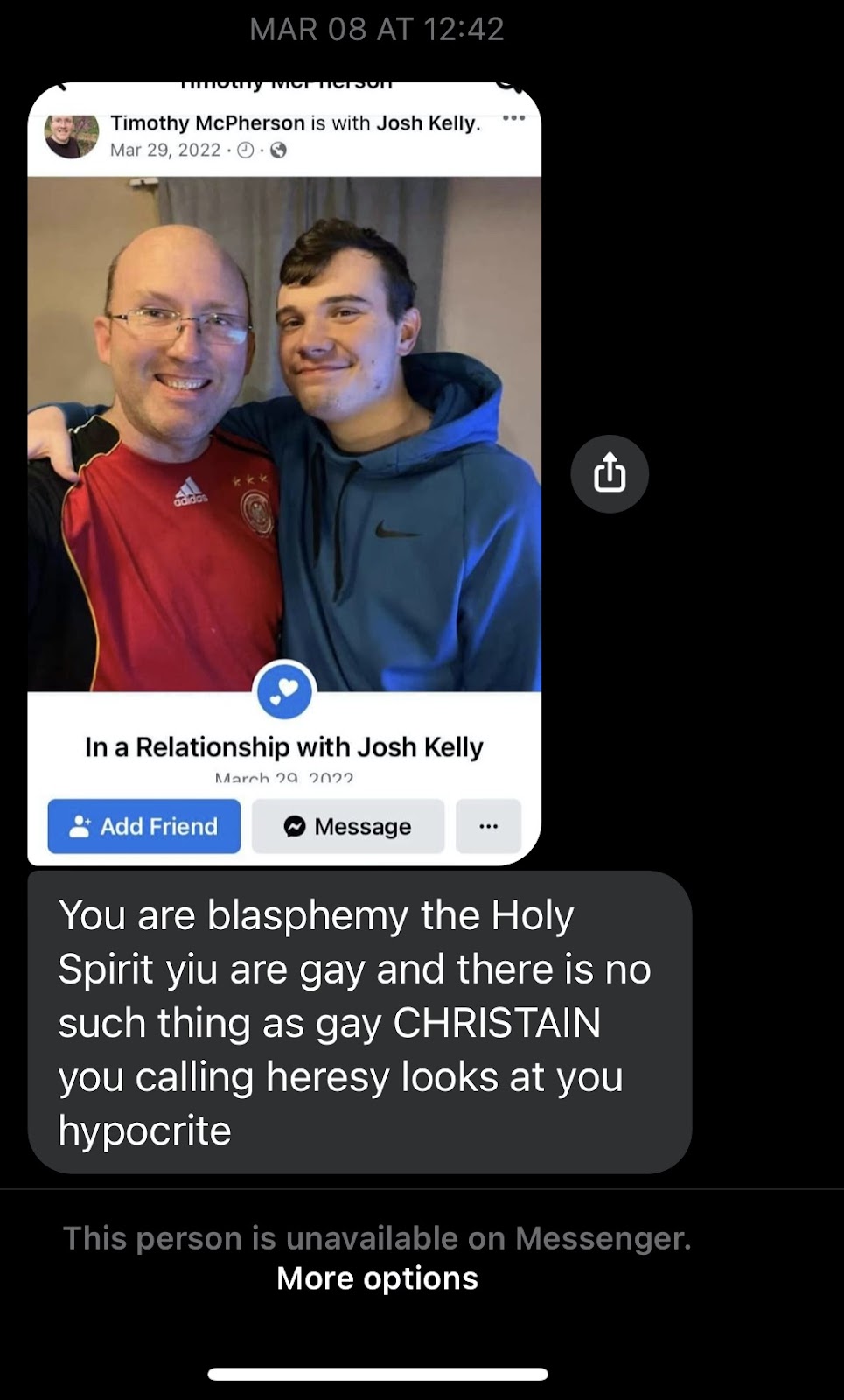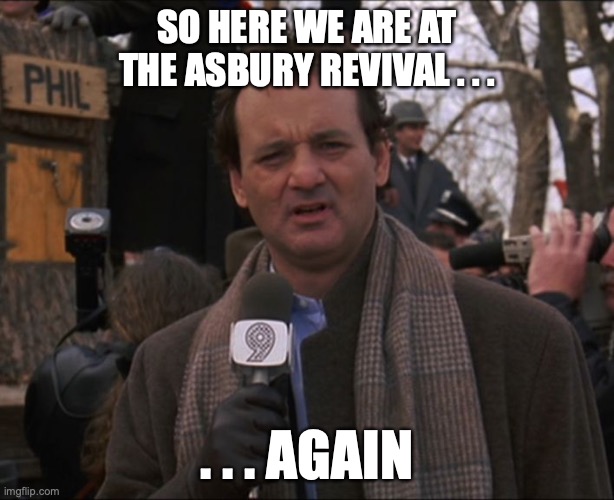In 2015 I was assaulted. I discussed it in a previous blog post. My assailant wanted to "beat the homosexuality" out of me. About 4 months ago I started to go through EMDR therapy because I am going through PTSD from the assault.
EMDR therapy is surprising and jarring at the same time. The science behind it is still ongoing, but I have been forced to confront issues that I had never thought I would need to confront. One issue that has been apparent is that I am still grieving. It's not just the assault that happened. It's everything that followed. I went through a divorce. I lost my ordination as a Salvation Army officer.
When I tried to be a lay member at my local Salvation Army congregation, I was thwarted by my divisional commander (like a bishop), with support from the local officers (pastors).
Since then, it has been a mixture of nostalgia, grief, and outright terror for what I experienced from The Salvation Army.
Nostalgia
The nostalgia comes from mostly the good things I experienced while in The Salvation Army. I enjoyed the overseas ministry I had: from serving in refugee camps in Albania and Kosova to running congregations in Germany. I was profoundly blessed and forever changed by my time there. I consider, however, that being over there changed me more than any tangible good I could do there.
I have nostalgia for the music, too. We had some wonderful brass bands, which is a very British institution. This is why I always played a cornet and never a trumpet. I also tended to eschew anything woodwind.
I also have wonderful friends who, to this day, have been my friends and allies, supporting me even financially when things have been really bad for me.
Grief
Then there is the obvious grief. I mourn what might have been. I see fellow friends who are still officers in The Salvation Army, in positions I thought I might have liked to have had, doing ministry I had wanted to do, knowing that this is forever taken away from me. This is always accompanied with resentment and bitterness, both of which I do not like, but which I constantly struggle with now.
I mourn what could have been, what should have been, and what will never be.
At the same time, I realize just how toxic of an environment that was for me. I am now grateful to be out of The Salvation Army.
Condemnation
I have family members and friends who regularly condemn me for talking bad about my experiences in The Salvation Army. They accuse (maybe rightly?) that I do not represent The Salvation Army in the right light. For instance: I often neglect to say that in the debacle of not being accepted as a soldier in the local Salvation Army corps (congregation), that I was eventually accepted as a soldier (lay member).
This is true. I had to have a face to face meeting with the divisional commander (like a bishop). He told me he didn't want Branson to become a controversy for same-sex marriage because of a blog post I had written. (Originally he had said because he didn't believe I was true to my covenant as a member of The Salvation Army.) By that time I had been regularly attending my new church in Springfield. I had refused to attend the Salvation Army church in Branson while my membership was in question.
So I tried going back to The Salvation Army. I felt extremely uncomfortable there. Several of the members of that church had already unfriended me or blocked me on social media, including the pastors. There was no attempt on healing or restoration. I will admit that the pastors eventually unblocked me on social media. I was grateful for that.
However, the damage had been done.
Neither here nor there . . .
So here I am, grieving.
Grief is hard and painful. It is also a part of being human.
What is hard about it for me?
Every time I drive by a Salvation Army thrift store and see that blazing Red Shield, I inwardly cringe. When friends and co-workers tell me that they are going to support The Salvation Army this Christmas, I die a little inside. I avoid eye contact with that smiling bellringer in front of grocery stores and I definitely refuse to donate to them.
During the Holiday Season of 2022, I received a letter from The Salvation
Army, asking for donations from me to support their work. Since I know how this mail appeal works, I realize that this was done by a third party, hired by The Salvation Army, to solicit donations from people all over the United States. The local officers (pastors) of The Salvation Army (probably?) had no idea that this was sent to me.
At the same time, I felt they were saying: "Hey, we kicked you out and ruined your life. Could you give us some money?" Nothing like rubbing salt into an already fecund wound.
People will say to me: "Don't you want to help other people? The Salvation Army does good work!"
Yes, they do. Absolutely they do. I have been a part of it. I have been there when we fed refugees who had just fled a war zone in Kosova. I have been there, providing meals to the residents of Meißen, Germany, when their town was flooded out. I was there, giving meals to law enforcement officers as they searched for the body of a baby girl, who had most likely been killed by her father.
Those were good things. They really were.
At the same time, because of my sexuality, I was told I could never serve in ministry again in The Salvation Army. I was called a heretic for saying the Bible is rarely clear about anything, let alone sexuality. I lost my home, my pension, and my livelihood because of who I am.
The Salvation Army is not all bad, but The Salvation Army is toxic for me.
Unavoidable
I cannot escape being around The Salvation Army either. Many of my friends are still members of The Salvation Army AND are progressive in their theology. They hope for a better future for The Salvation Army. I do, too, but it will not include me in that future.
I am currently in a wonderful relationship with another man. Because of this, I cannot be a member of The Salvation Army, even if I wanted to. If we were to get married, it could not be done in a Salvation Army facility. When I had been married previously, my father (who is a retired Salvation Army officer) officiated the ceremony. He would not be allowed to officiate again if it were my boyfriend and I getting married.
The Salvation Army is a homophobic institution, despite their protests to the contrary.
As much as I would like to, I cannot escape The Salvation Army without doing something extremely radical.
I will never shop in a Salvation Army thrift store again. I will never put money in the kettles during Christmas. I certainly won't ever donate to them again. They have hurt me so much.
So if I wince when we talk and you say you just got this great outfit from a Salvation Army thrift store, that's why. If you ask for donations for The Salvation Army instead of giving you a present on your birthday, I will ignore it.
Allow me to grieve. My grieving is on my timeline. To ask me to get over it negates the trauma that I went through.






